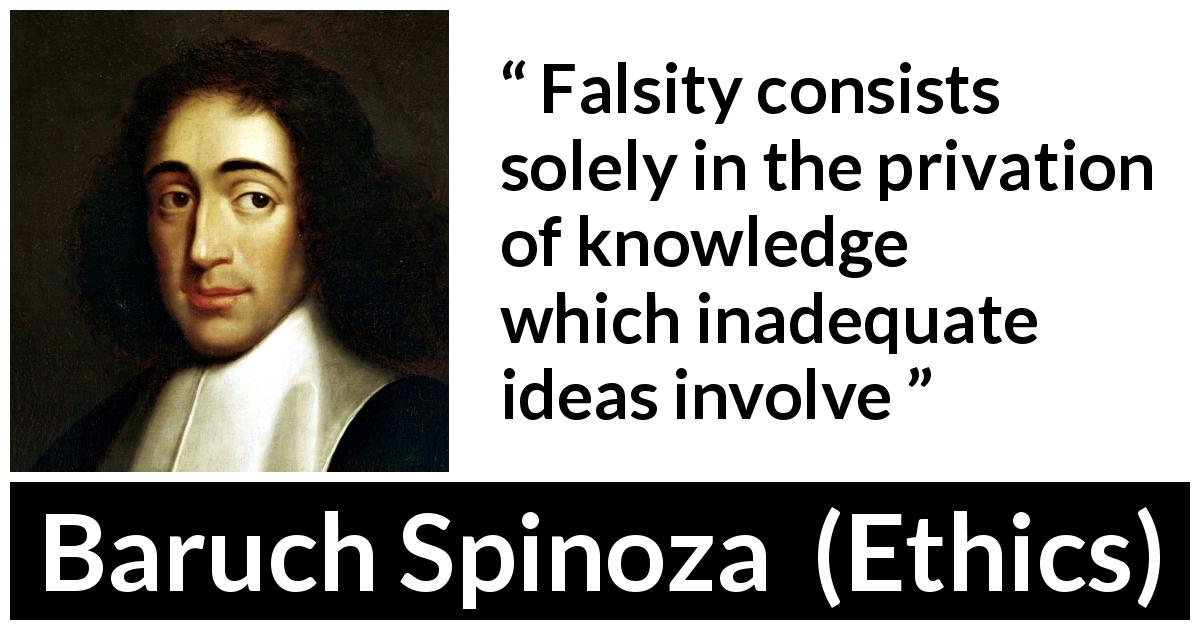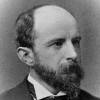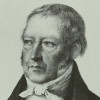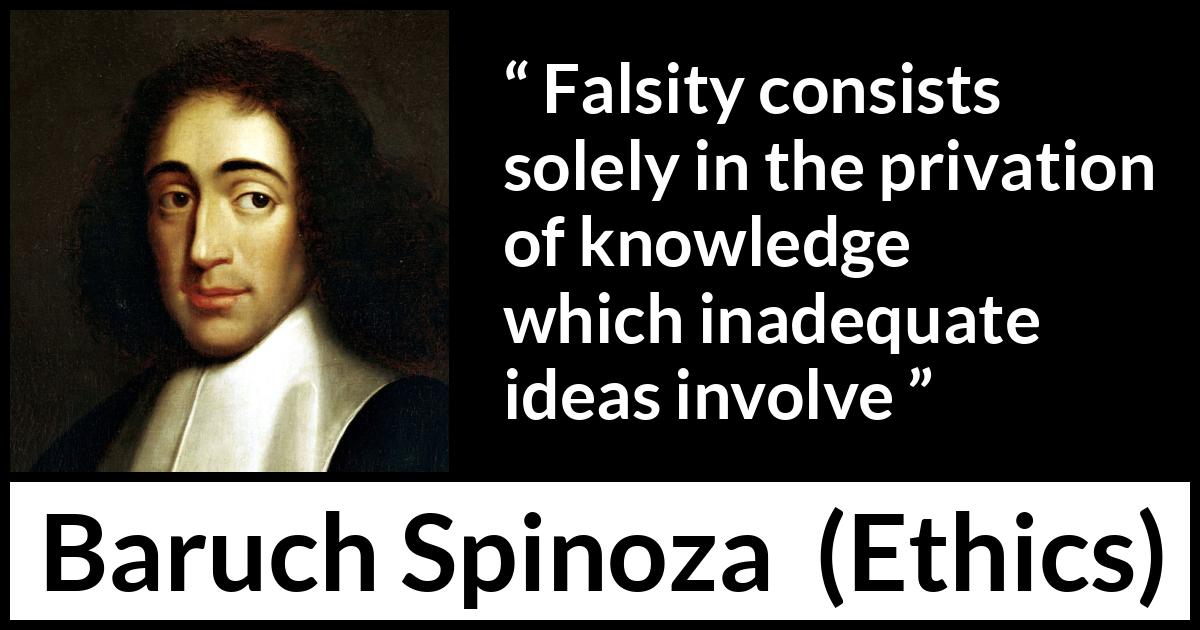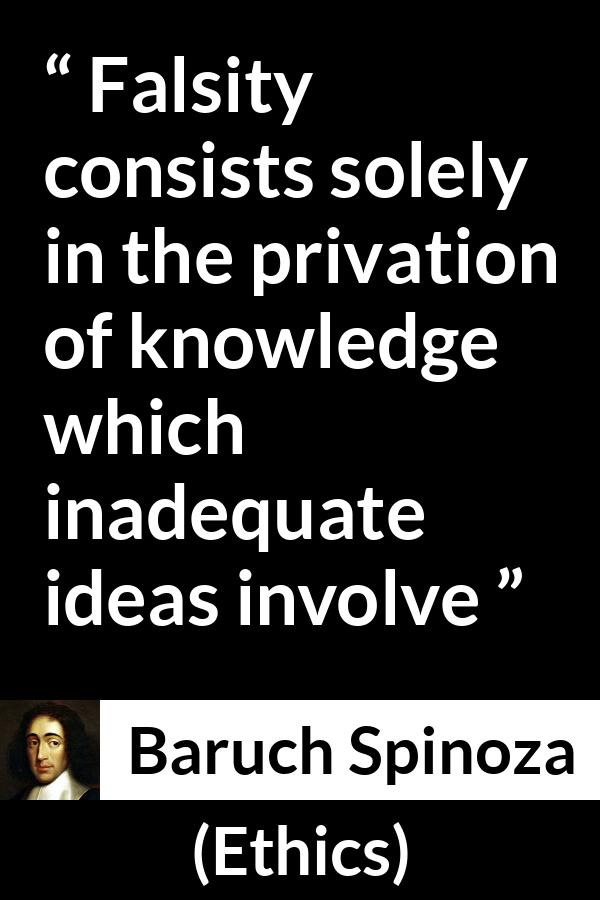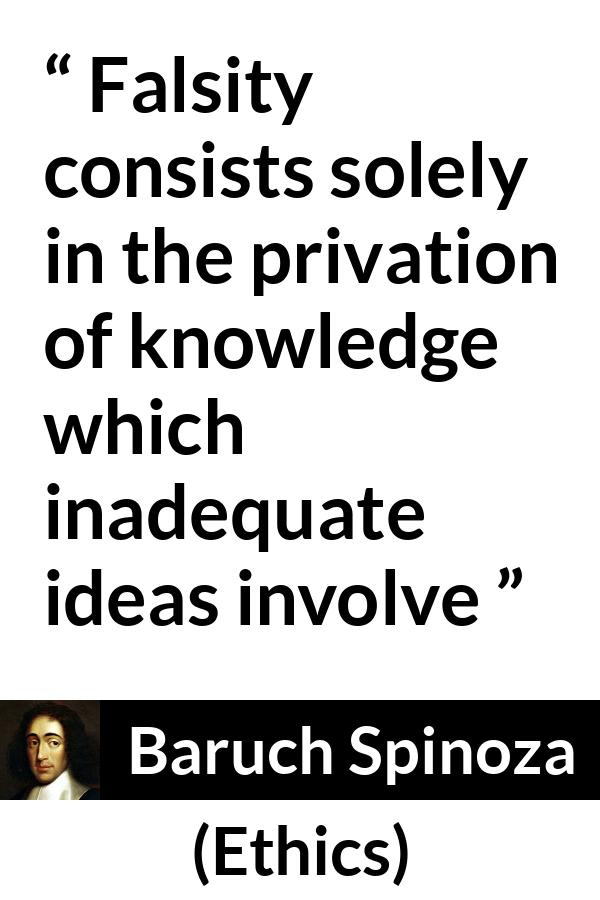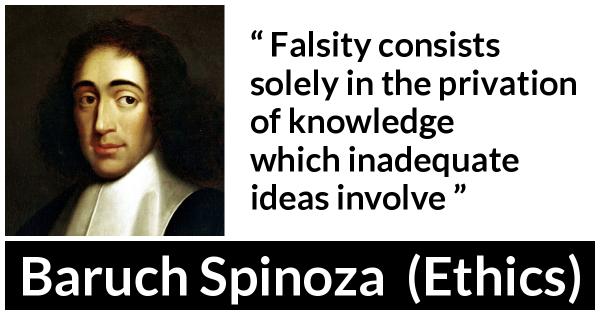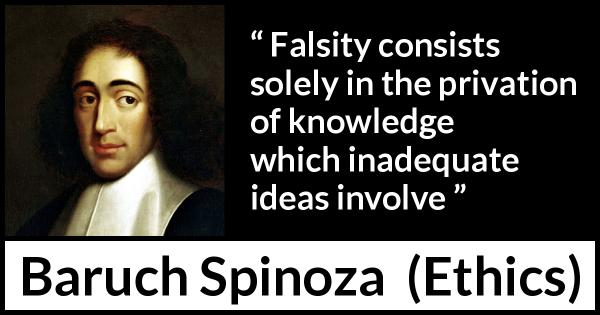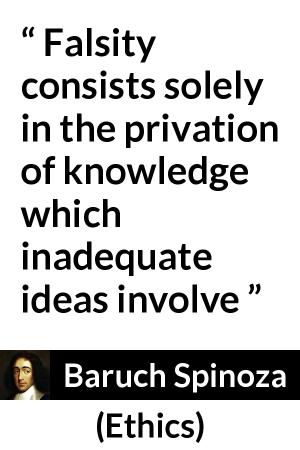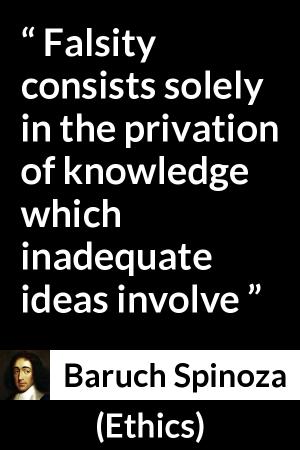“ Falsity consists solely in the privation of knowledge which inadequate ideas involve ”
Baruch Spinoza, Ethics (1677). copy citation
| Author | Baruch Spinoza |
|---|---|
| Source | Ethics |
| Topic | ignorance knowledge falsity |
| Date | 1677 |
| Language | English |
| Reference | |
| Note | Translated by R. H. M. Elwes |
| Weblink | http://www.gutenberg.org/files/3800/3800-h/3800-h.htm |
Context
“Whatsoever thing be given, there is something stronger whereby it can be destroyed.
PROPOSITIONS.
PROP. I. No positive quality possessed by a false idea is removed by the presence of what is true, in virtue of its being true.
Proof.—Falsity consists solely in the privation of knowledge which inadequate ideas involve (II. xxxv.) , nor have they any positive quality on account of which they are called false (II. xxxiii.) ; contrariwise, in so far as they are referred to God, they are true (II. xxxii.) . Wherefore, if the positive quality possessed by a false idea were removed by the presence of what is true, in virtue of its being true, a true idea would then be removed by itself, which (IV.” source
PROPOSITIONS.
PROP. I. No positive quality possessed by a false idea is removed by the presence of what is true, in virtue of its being true.
Proof.—Falsity consists solely in the privation of knowledge which inadequate ideas involve (II. xxxv.) , nor have they any positive quality on account of which they are called false (II. xxxiii.) ; contrariwise, in so far as they are referred to God, they are true (II. xxxii.) . Wherefore, if the positive quality possessed by a false idea were removed by the presence of what is true, in virtue of its being true, a true idea would then be removed by itself, which (IV.” source
